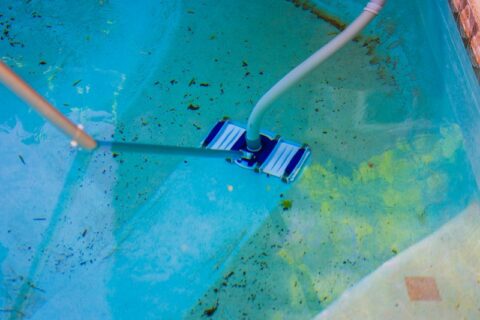How Often Should Public Pool Water Be Tested?
A refreshing dip in a public pool is a favorite summer activity for many. But behind the fun and relaxation, a rigorous process of maintenance and safety checks is necessary. Proper pool water testing is essential for ensuring a safe and healthy swimming environment for everyone. Understanding the process and its importance is key for any facility manager. Learn more about how often you should do pool water testing in Virginia, Washington, D.C., and Maryland.
Why Is Swimming Pool Water Testing Important?
Water testing is critical for maintaining balanced pool water chemistry. Unbalanced water can cause a host of problems. It can lead to skin and eye irritation for swimmers, damage pool surfaces and equipment, and most importantly, create an environment where harmful bacteria and pathogens thrive. Regular commercial swimming pool water testing ensures that sanitizers like chlorine are working effectively and that pH levels are stable, protecting both swimmers and your investment.

What is the Ideal Pool Water Testing Frequency?
The recommended pool water testing frequency can vary based on local health department regulations and pool usage. However, a general rule for public or commercial pools is to test the water multiple times a day, as we have learned here at Millennium Pools & Spas. Here is more on the ideal pool water testing timeline:
- Chlorine and pH Levels: These should be tested at least two to four times daily, especially during peak hours. Heavy bather loads can quickly deplete chlorine levels.
- Alkalinity: Test this at least once a week. Total alkalinity helps buffer the pH, preventing drastic swings.
- Calcium Hardness: A monthly test is typically sufficient to prevent scaling or corrosion.
- Cyanuric Acid (Stabilizer): This should also be checked monthly to ensure its protecting chlorine from sunlight without becoming too high.
How Do I Test Pool Water?
Testing pool water can be done using several methods. Digital readers offer fast and precise results, while test strips and reagent kits are also common. To get an accurate sample, collect water from about 18 inches below the surface, away from return jets or skimmers. Following the instructions for your chosen testing method is crucial for accurate reading.
Benefits of Regular Pool Water Testing
Consistent testing provides numerous benefits. It ensures a safe swimming environment, free from harmful contaminants. It also extends the life of your pool’s plaster, plumbing, and equipment by preventing corrosion and scaling. Furthermore, a well-maintained pool provides better experience for guests, protecting your facility’s reputation.
Your Partner for Pool Safety in Virginia, Washington, D.C., and Maryland
For facility managers in Virginia, Washington, D.C., and Maryland, managing commercial swimming pool water testing can be a complex task. Millennium Pools & Spas has the expertise to ensure your pool remains safe, compliant, and sparkling clean. We provide professional maintenance and testing services tailored to your specific needs.
Don’t leave the safety of your swimmers to chance. Ensure your pool is always ready for guests. Fill out our contact form or call us today to speak with our professional team about your pool service needs.


